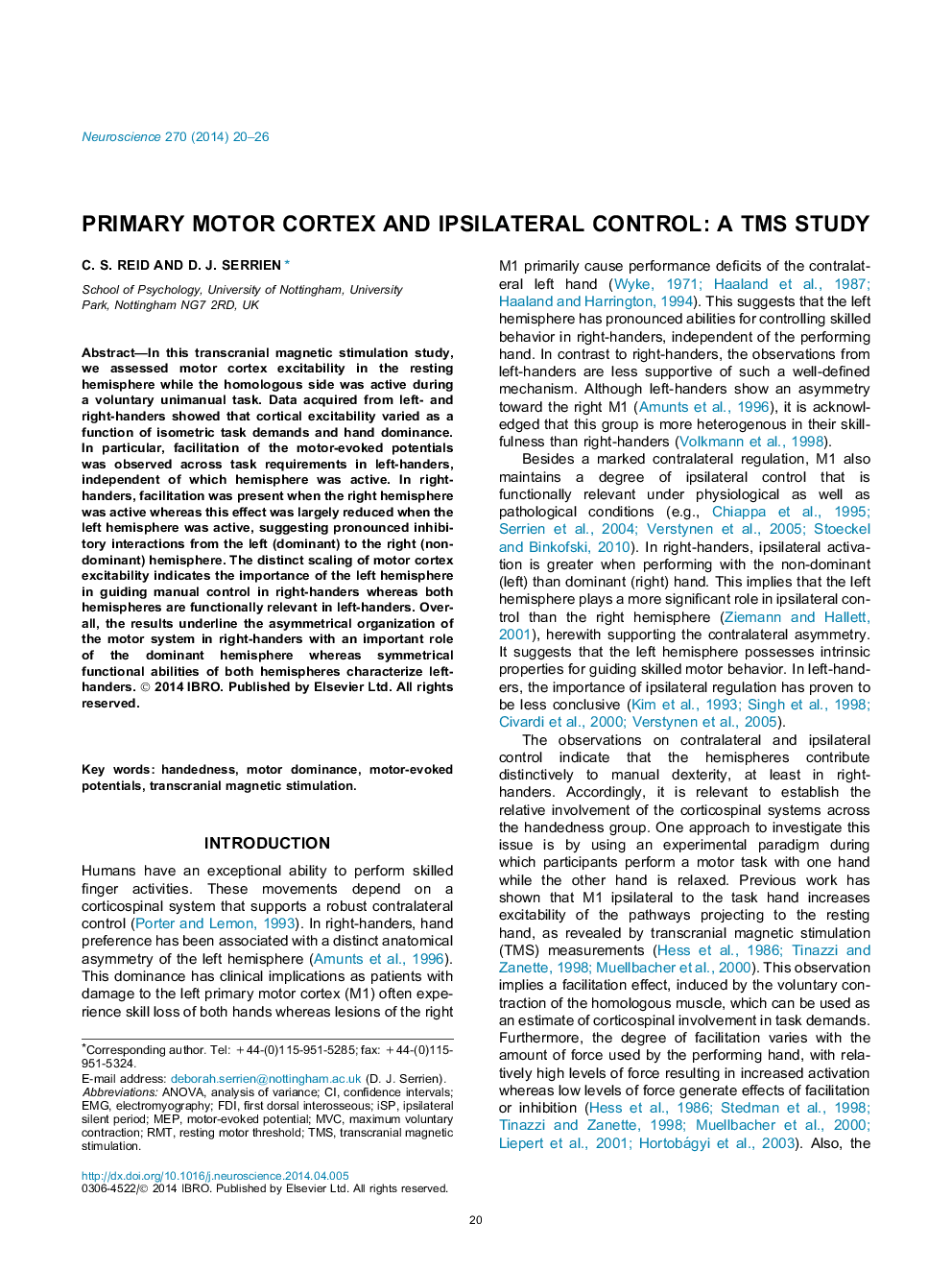| Article ID | Journal | Published Year | Pages | File Type |
|---|---|---|---|---|
| 4337588 | Neuroscience | 2014 | 7 Pages |
•Study examines MEP facilitation in the resting hand during homologous unimanual performance.•Asymmetric MEP facilitation as a function of hand dominance.•Left hemisphere dominance in right-handers.•Functional significance of both hemispheres in left-handers.
In this transcranial magnetic stimulation study, we assessed motor cortex excitability in the resting hemisphere while the homologous side was active during a voluntary unimanual task. Data acquired from left- and right-handers showed that cortical excitability varied as a function of isometric task demands and hand dominance. In particular, facilitation of the motor-evoked potentials was observed across task requirements in left-handers, independent of which hemisphere was active. In right-handers, facilitation was present when the right hemisphere was active whereas this effect was largely reduced when the left hemisphere was active, suggesting pronounced inhibitory interactions from the left (dominant) to the right (non-dominant) hemisphere. The distinct scaling of motor cortex excitability indicates the importance of the left hemisphere in guiding manual control in right-handers whereas both hemispheres are functionally relevant in left-handers. Overall, the results underline the asymmetrical organization of the motor system in right-handers with an important role of the dominant hemisphere whereas symmetrical functional abilities of both hemispheres characterize left-handers.
